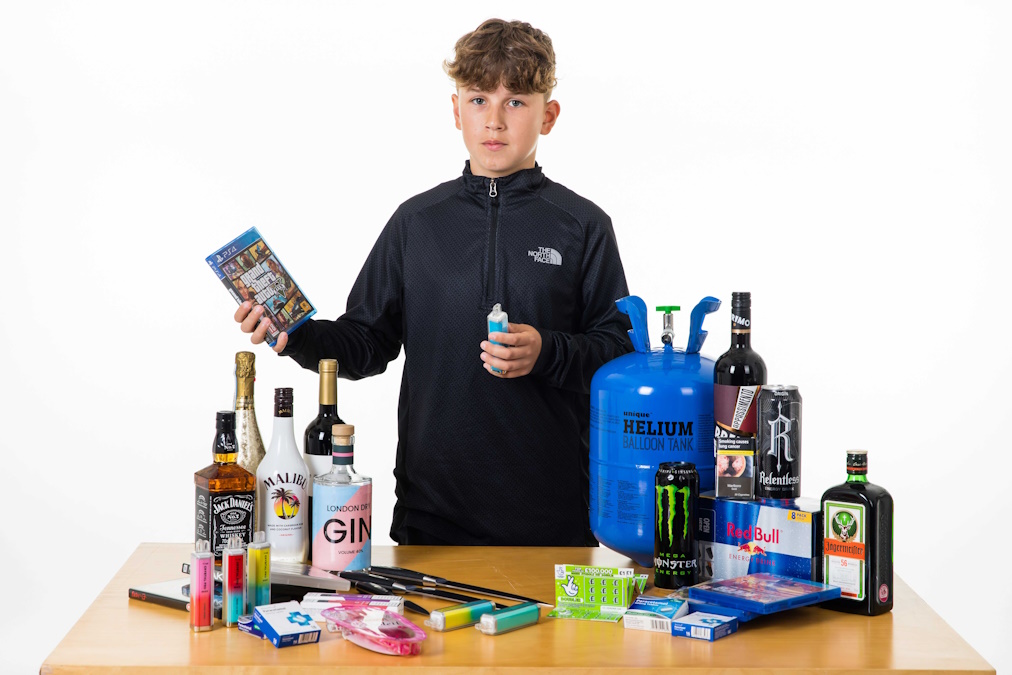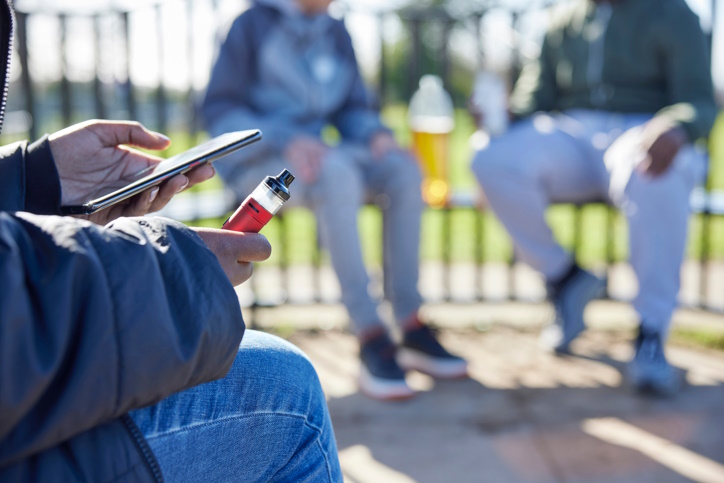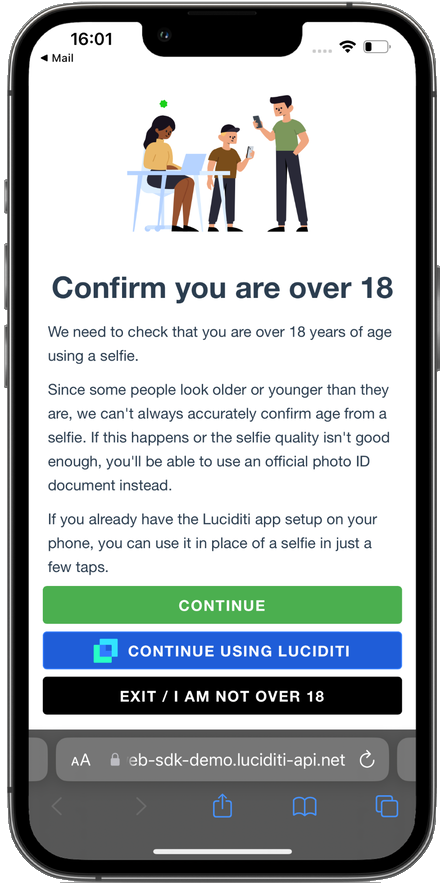Digital ID Platform Luciditi is setting a new standard in age assurance, in support of tighter internet regulation. The Online Safety Bill, currently going through parliament, aims to restrict anonymous access to adult content. The planned new law has led to concerns about an era of ‘Big Brother’ oversight, along with new risks of ID fraud. Luciditi offers a solution to both these fears, paving the way in age assurance and trust.
The Online Safety Bill promises to tackle a range of potentially harmful content, including trolling, and underage access to pornography. The measures would create a new duty of care for online platforms, which if breached could lead to fines of up to £18 million or 10% of their annual turnover, whichever is higher.
Digital Secretary Oliver Dowden said the “ground-breaking laws” would “usher in a new age of accountability for tech and bring fairness and accountability to the online world”. Dowden said the measures” will protect children on the internet, crack down on racist abuse on social media and through new measures to safeguard our liberties, create a truly democratic digital age.”
However, campaigners have argued that the bill flies in the face of the government’s attempts to strengthen free speech elsewhere in Britain. Mark Johnson, legal and policy officer at civil liberties and online privacy group Big Brother Watch, said: “The Online Safety Bill introduces state-backed censorship and monitoring on a scale never seen before in a liberal democracy.”
Yet, until the bill is passed, the need for accountability across the internet in the UK continues to go unanswered. Current levels of protection for children and vulnerable people are inadequate, as demonstrated by the tragic case of 14-year-old Molly Russell.
After Molly took her own life in 2017, an inquest found that she “subscribed to a number of online sites…some of these sites were not safe as they allowed access to adult content…The way that the platforms operated meant that Molly had access to images, video clips and text concerning or concerned with self-harm, suicide or that were otherwise negative or depressing in nature. The platform operated in such a way using algorithms as to result, in some circumstances, of binge periods of images, video clips and text some of which were selected and provided without Molly requesting them.”
The new laws would aim to stop children seeing such content, by requiring platforms to restrict access to underage users. Melanie Dawes, chief executive of Ofcom, the agency that will enforce the new measures, believes the regulations will take “us a step closer to a world where the benefits of being online, for children and adults, are no longer undermined by harmful content.”
At the moment, the half-hearted ‘I’m 18’ checkbox entry points used by adult websites imply a thin veneer of responsibility. In truth, they are ineffective at stopping children and vulnerable individuals accessing inappropriate content.
Once the bill becomes law, platforms offering adult content, or age-restricted goods or services, will need to be better assured that users meet minimum age requirements. Verifying age often involves an individual sending images of personal documents. For this reason, an increased demand for personal data created by the bill is a concern for campaigners. It also increases the risk of online identity fraud.
The mishandling of sensitive data could potentially be open to abuse. Individuals can only hope that their personal information will be safeguarded once it’s in the hands of the online company they sent it to. However, not all online businesses are transparent about their ownership, processes or values, raising questions of trust.
Once the new law is passed, platforms and their users will need a quick, painless sign-up process that provides assurance on age yet is as risk-free as possible. In facilitating this level of assurance, while still preserving trust, Luciditi has a gold-standard pedigree.
Developed in-house over four years by UK tech company Arissian, Luciditi benefits from experience gained from their previous business which focused on the UK Healthcare market. Docman which handles clinical documents for two-thirds of the UK population, gives Arissian proven experience in bringing iron-clad security to sensitive personal data in volume.
Already supporting clients across a range of sectors, Luciditi is set to lay down new standards in age assurance. The Age Verification Providers Association (AVPA) has broken down age assurance into two categories, estimation and verification. Offering a smart approach to both, Luciditi delivers the holy grail – of strong assurance (including verification when necessary) without requiring individuals to give their personal data to a random online business.
Luciditi addresses the first of AVPA’s two categories, age estimation, through AI analysis of a selfie. Cutting out the need for sensitive personal data, the user simply takes a selfie using their web cam or mobile, and the Luciditi Age Estimation feature – embedded within the app – takes care of the rest.
Using a restricted, ethical and continually trained machine-learning model, Luciditi checks for a good quality image. Highly proficient in differentiating between children and adults, the app looks for ‘liveness’ of the individual, guarding against manipulated images, latex masks and spoofing attempts. Once image composition checks are complete, the app estimates an individual’s age, with the whole process normally taking just a few seconds.
With AI, there’s no need for someone aged 52 to give away their passport details simply to prove they’re not 15. Allowing a tolerance for plus or minus seven years, Luciditi can quickly and reliably show that the majority of users fall into the appropriate age range. Some businesses might be able to register more than two-thirds of users through estimation, depending on their average age.
Ian Moody, Luciditi CEO, says “Age estimation is useful in situations where you need to introduce a ‘low friction age check’ without needing an exchange of personal data.”
When Luciditi can’t be sure that someone meets minimum age requirements, verification is needed. Here, Luciditi meets AVPA’s second – more stringent – level of age assurance. Users in this category will need to send personal data, but they reduce risk by sending it only to Luciditi.
Serving as a trusted middleman, Luciditi receives personal data from an individual and then assures a client business that age has been verified, giving them no more information than that. Luciditi simply gives the business a true/false decision on proof of age, the same degree of confirmation that comes with age estimation.

Already Luciditi is supporting clients such as IDGO (pronounced I’dgo), who will soon be delivering proof-of-age identity cards aimed at people aged 18 – 38 who need proof of age at 18+ activities and events. At the moment, people attending ‘no ID, no entry’ events will often take a passport or driving licence to a crowded venue, documents that are full of information useful to anyone looking to steal an identity.
Such events are often followed by countless #lostpassport posts. They’re a goldmine for fraudsters seeking to take out a loan or open a bank account with an overdraft facility – both easily done online. The UK government reports that just under 400,000 passports are lost or stolen each year, with a million driving licences lost in 2017 (the latest available figure).
IDGO’s card is a safer alternative. New clients will be asked for ID verification, which they securely supply to Luciditi who in turn provide assurance to IDGO. The UK’s first proof of age and identity card, IDGO also doubles as a contactless pre-paid payment card, allowing users to leave their regular bank card at home too, along with their passport or driving licence.
The Online Safety Bill has not had an easy passage through parliament. Campaigners have a range of concerns, and tech platforms are a powerful force to contend with. But action is necessary, as the death of Molly Russell demonstrates. Innovations such as Luciditi offer a credible, safe and trusted way forward. Without them, the Wild West side of the internet will continue to threaten our children, while adults risk tangling with fraudsters. Luciditi can alleviate concern on all sides. Wild corners of the internet will continue unabated, but users can now find comfort in new levels of protection.
Want to know more?
If you would like to find out how Luciditi can get you ready to meet the Age Assurance responsibilities of the new Online Safety Bill contact us for a chat today.
Get in touch







